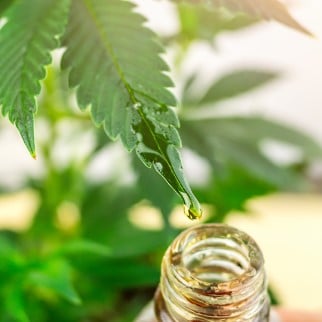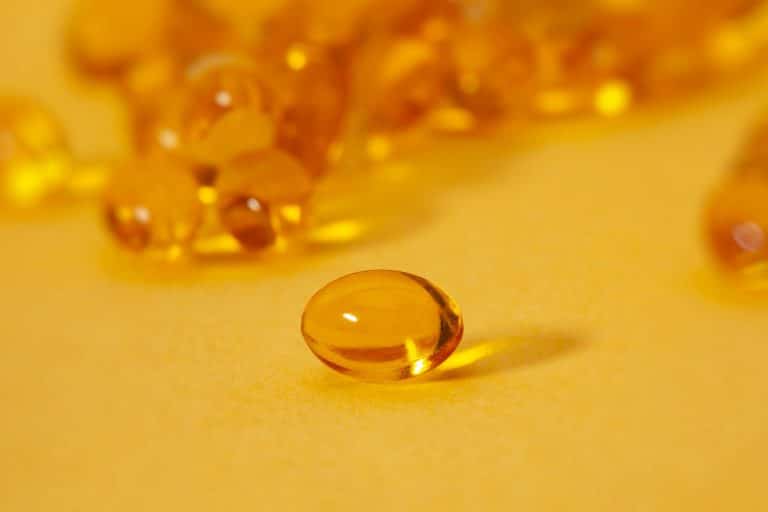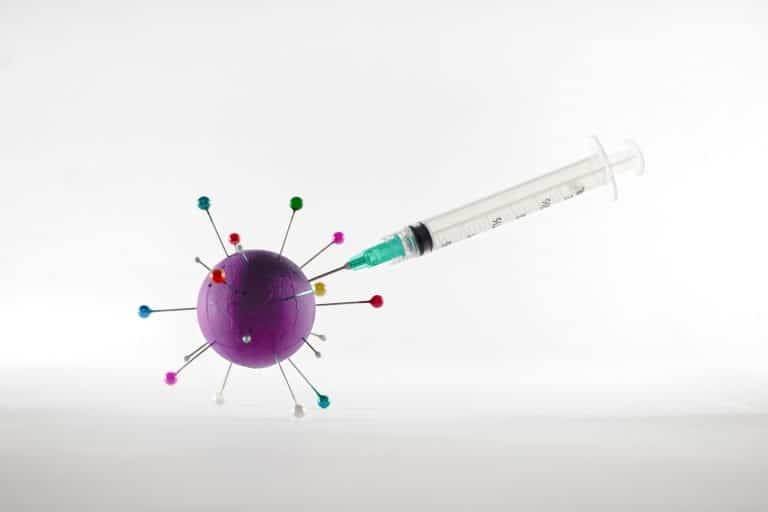5 Things You Need to Know About THCV

Posted on June 4th, 2021
When it comes to cannabis extracts, there’s always a hot new set of initials to follow, like THCV. You see, chemical compounds called cannabinoids form inside hemp and marijuana plants. And there are over 100 different ones, from CBD to THC and more. Now, each one can be extracted for our use, producing particular effects in our bodies.
Of course, some cannabinoids are more prominent than others. These, like THC and CBD, get lots of attention, and are readily available in many full-spectrum cannabis extracts. But others, like THCV, are present in smaller quantities. Even so, these lesser cannabinoids have the potential to make important impacts in the health and wellness sector. Which is why, today, we’re exploring 5 key facts to help you understand THCV.
What is THCV? 
Tetrahydrocannabivarin or THCV is a cannabinoid. As the name implies, THCV shares many similar properties with THC. And that means, thanks to its molecular structure, that taking THCV could produce psychoactive effects. (More about that in a minute.)
Still, THCV is also distinctly different from THC. Case in point: THCV has a boiling point of 428 °F (220 °C). (In contrast, THC’s sits somewhere between 200 and 400 °F. So if you are a vaporizer, you’ll have the turn the heat higher than you normally would when using THC.
Will THCV get me high?
The short answer to this question is, yes. THCV will get you high, but it’s a different experience than the high associated with THC, In fact, people call this cannabinoid the ‘race car’ of the group. That’s because users experience a short-lasting but fast-acting high.
Also, THCV can exhibit psychoactive properties. But only when you take high doses. Then, at extremely high levels, THCV acts identically to THC as a CB1 receptor agonist. Even then, however, THCV effects are significantly weaker. More importantly, in low doses, THCV seems to act as a CB1 receptor antagonist. Which means that it may mitigate some of THC’s less-desirable effects, including diminished cognitive function, food cravings, and poor motor control.
Just like any other cannabinoid, THCV concentrations in cannabis flowers differs greatly depending on the strain you select. Plus, reactions created as CBGVA catalyzes will also impact your final cannabinoid concentrations. Still, in potent strains, you may find enough THCV to induce psychoactive effects. And, many users report that this high is both stimulating and able to enhance their mental clarity.
Looking for a great raw source? We’ll offer plenty of tips soon. But for now, keep this in mind. THCV seems to be more dominant in strains that come from Africa, like Durban Poison. But local growers are also starting to produce specially cultivated strains with higher than average THCV concentration. Just remember: genetics alone can’t guarantee that a certain strain will have higher THCV levels. That’s why the best way to ensure your cannabinoid concentrations is to ask for lab results linked to your specific cannabis product.
THCV vs THC
Tetrahydrocannabivarin and Tetrahydrocannabinol are cannabinoids that, if used in high doses, elicit psychoactive effects. They do so because they interact with your body’s endocannabinoid receptors. And that’s where their similarity ends. In spite of the similar names, we extract the two compounds from different parent molecules. Plus, they induce different effects and their natural concentrations in the plant vary greatly.
At first sight, both cannabinoids seems to have near-identical chemical compositions. In fact, the only visible distinction is that THC has a long hydrocarbon chain. And the two compounds come from entirely different parent molecule and chemical passageways.
THC (as well as cannabichromene (CBC), and cannabidiol (CBD) ) come from (CBGA) cannabigerolic acid. This predecessor acid is produced from a reaction between olivetolic acid and geranyl pyrophosphate and olivetolic acid.
The parent molecule of tetrahydrocannabivarinic acid (THCVA) and THCV is cannabigerovarinic acid (CBGVA). And that’s created when divarinolic acid reacts with geranyl pyrophosphate instead of olivetolic acid to synthesize CBGA. Afterwards, both CBGA and CBGVA undergo the same reaction. Together with a THC synthase enzyme and decarboxylation, they then create THCV and THC, respectively.
Emerging THCV research
The compound is already linked to various psychological effects. But with new medical cannabis research, we expect to discovered even more possibilities. Currently, researchers are exploring THCV’s potential in some of the following areas.
Obesity And Weight Loss
THCV seems to be an appetite suppressant, and may help people struggling with obesity. Studies suggest that doses of 5 to 7.5 milligrams can reduce your appetite. One study by the Journal of Neuropsychopharmacology, suggests that THCV may be a viable weight-loss treatment since it boosts connectivity in parts of the brain that display changes in obese individuals.
But remember, these studies only support THCV’s weight-loss properties when it’s consumed in low concentrations. High doses of THCV will get you high, and increase your appetite instead.
Diabetes
Early research suggest THCV may help you manage diabetes. Back in 2013, the Nutrition and Diabetes Journal explored the effects of THCV on mice with Type 2 diabetes. And here’s what they found: THCV created a surge in energy outflow in obese mice. It also minimized glucose intolerance. Even better? THCV increased the diabetic mice’s insulin sensitivity. Finally, the study concluded that THCV may be a viable treatment option for obesity-related glucose intolerance. In 2016, another study revealed that THCV boosted pancreatic cell functioning in people with Type 2 diabetes.
Anti-Inflammatory Effects
THCV also seems to function as a powerful anti-inflammatory agent.
In 2010, the British Journal of Pharmacology researched THCV’s ability to trigger CB receptors. What did they discover? Apparently, in mice, the compound minimizes inflammatory symptoms and associated inflammatory pain, likely because it affects the CB receptors.
More recently, THCV was highlighted in connection with cannabinoids’ anti-inflammatory impact on Covid-19- lung inflammation. The research, published in the Nature journal Scientific Reports, suggests that cannabigerol (CBG) and low-dose THCV reduces inflammation in Covid patients’ lung cells. But at this time, there are no approved cannabinoid Covid treatments.
Tremors And Seizures
Preventing seizures with CBD and THC is already a huge area of research focus. So it’s only natural that THCV is also being researched as a viable anticonvulsant.
In 2010, researchers study discovered that THCV exhibited anticonvulsant and antiepileptic properties. That effect worked preventatively or during a seizure. In this way, THCV may join CBD as a future treatment for certain forms of epilepsy.
The same could be true for other neurologic conditions. One study on a rat with Parkinson’s disease showed that using THCV improved motor functioning. And chronic use helped delay disease progression by reducing neuron loss in the mid-brain.
Top Sources
Not sure where to get this hot cannabinoid? Well, most strains have trace amounts of THCV. And that makes it hard to get your desired effects. So, while we can to see new THCV-rich products soon, these are the best sources for now.
- Search for Africa sativas. Research shows that THCV is most dominant in African sativa strains. For example, Durban Poison is among the most prevalent high-THCV strain. You can find other options in the complete strain list below.
- Research parent genetics. If you can’t locate an Africa sativa, don’t worry. Many strains have crossbred African genetics. For instance, Cherry Pie may offer a high THCV concentration due to its Durban Poison parent. Make sure to check for the lineage data or seek advice from your budtenders on African hybrids.
- Request test results. High-THCV concentration can’t be promised by genetics only, since cannabinoid levels vary from season to season. To be safe, ask your budtender for lab-certified, THCV-rich strains, using the list below as a great jumping-off point!
High-THCV Cannabis Strains
-Jack the Ripper
-Durban Cheese
-Red Congolese
-Willie Nelson
-Skunk #1
-Durban Poison
-Power Plant
-Pineapple Purps
-Doug’s Varin
Now, when it comes to U.S. legality, you need to know whether your product is sourced from a hemp or marijuana cannabis variety. Here’s a few helpful hints that can keep you on the right side of the law.
Marijuana vs Hemp

While extracted from the same cannabis plant species, and while they look the same, marijuana and hemp plants have important differences. Plus, conflicting legal regulations, usages and effects separate the plants. So, to fully understand how these two vary, here are the key differences you should know about marijuana and hemp.
Composition
The main distinction between marijuana and hemp is their chemical composition. Both marijuana and hemp create high quantities of CBD, the non-psychoactive cannabis compound. But THC is created in different concentrations. Although hemp can have at least 0.3% THC concentration when measured by dry weight, marijuana contains THC concentrations of up to 30%.
Legality
The THC concentration levels in marijuana and hemp are different which is why the law regulates them differently.
Although hemp was categorized as a prohibited substance in the Controlled Substance Act of 1970, the Agricultural Improvement Act of 2018 removed it from the list of controlled substances. This federal law legalized hemp-derived products and hemp containing less than 0.3% THC concentration. On the other hand, marijuana is still categorized as a Schedule 1 substance and is federally illegal. So be sure to check with your state laws before making a purchase.
Cultivation
Marijuana and hemp are harvested for different reasons so they need different cultivation conditions. Marijuana grows in controlled atmospheres designed to maximize its characteristics and make female plants produce budding flowers. For optimal results, check details like humidity, lighting, and proper temperature. On the other hand, hemp is cultivated to maximize its yield and size. To that end, hemp is cultivated outdoors and doesn’t need the attention and control required to grow marijuana.
5 Key Facts About THCV
- THCV produces very different effects in low and high doses.
- In low doses, the cannabinoid may have therapeutic benefits and can minimize a THC high. But in higher doses, you’ll get a ‘fast and furious’ high from THCV.
- Most cannabis plants produce low concentrations of THCV. Certain strains can offer higher concentrations. But, for now, your best bet may be from the entourage effect associated with our full-spectrum CBD products.
- In the future, THCV may help you lose weight and avoid diabetes.
- The cannabinoid also shows early promise for people with epilepsy and Parkinson’s disease. So keep watching for more news stories surrounding this lesser-known cannabinoid!






